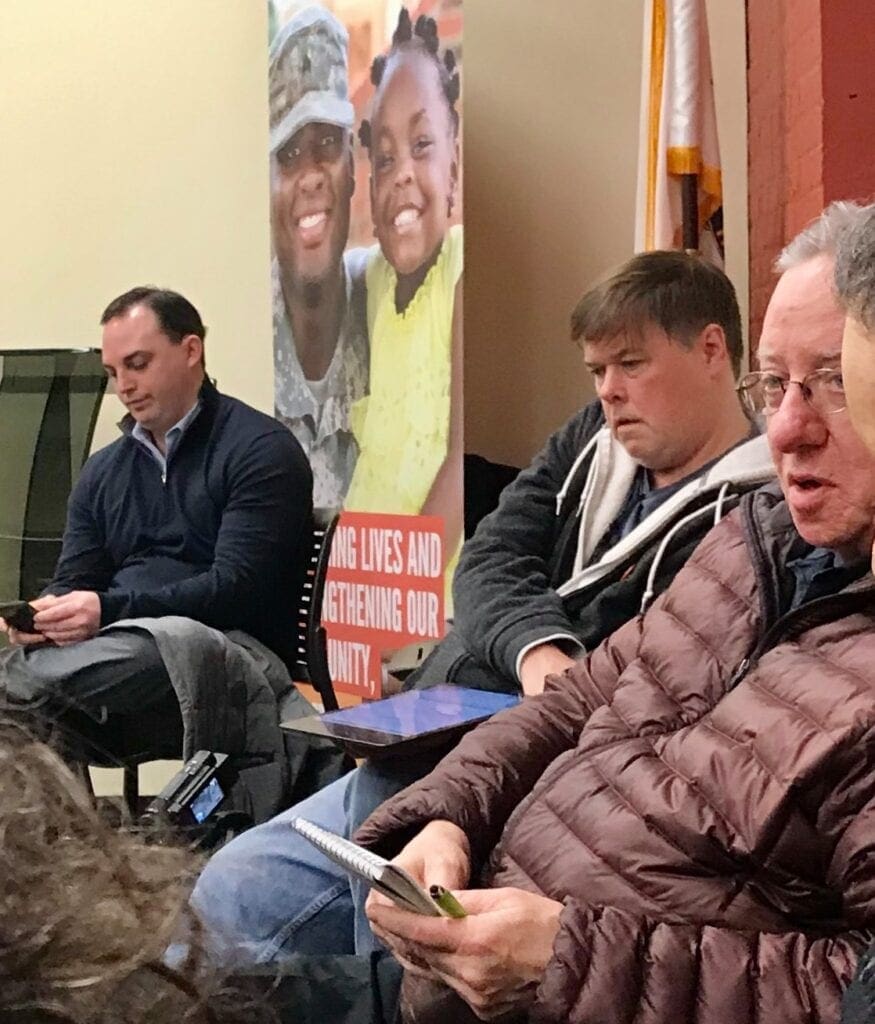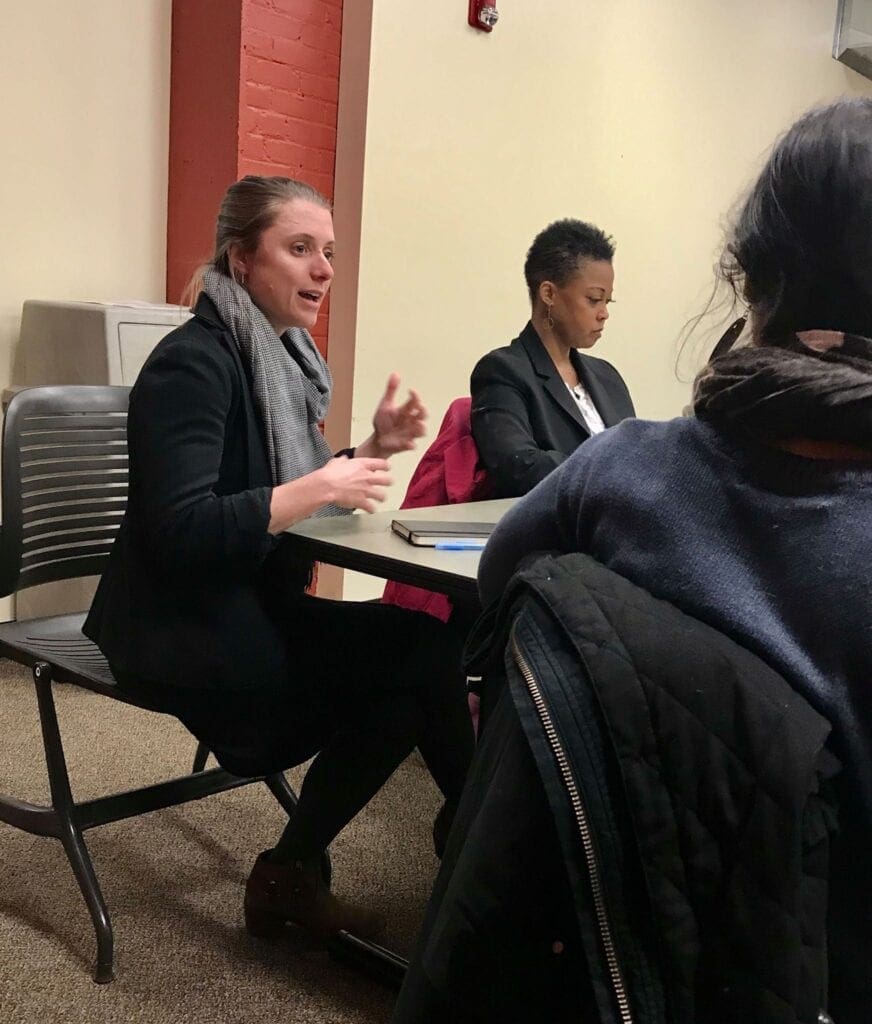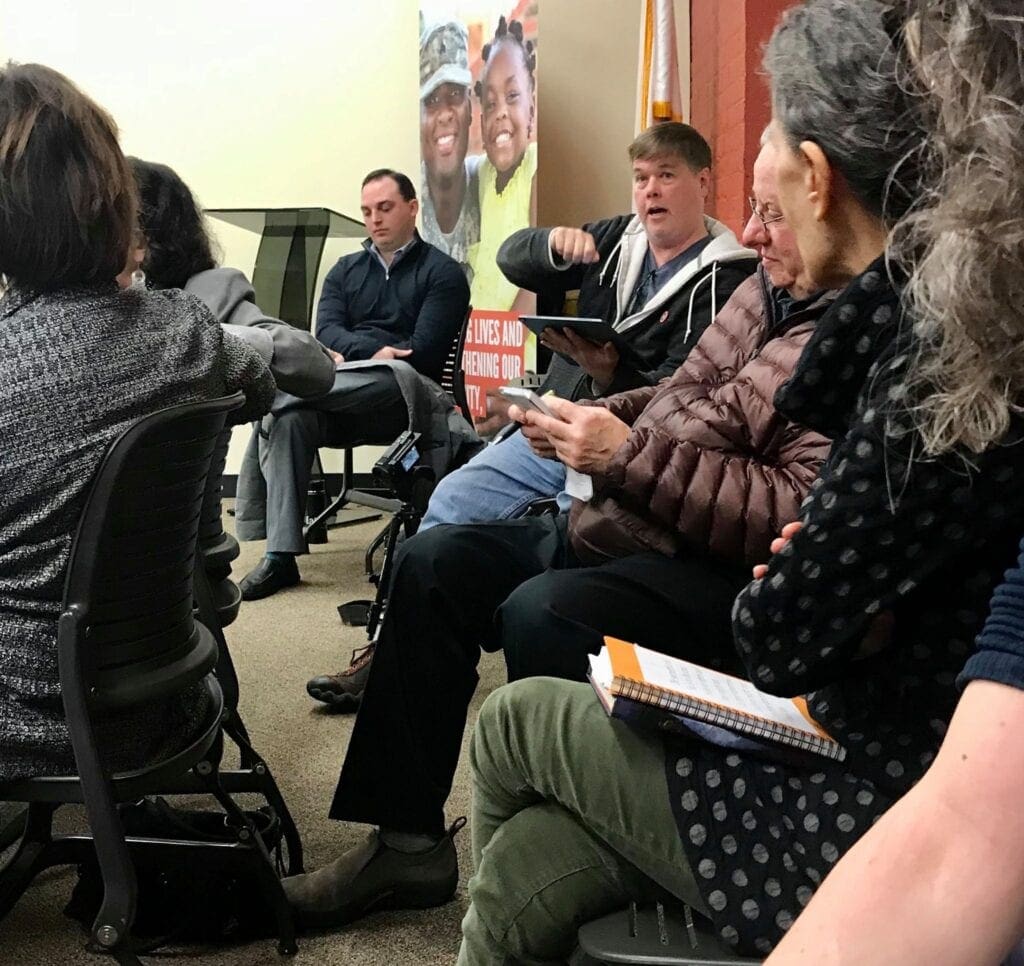Search Posts
Recent Posts
- Out and About in RI: Former Pawtucket Mayor Henry Kinch Tribute in Photos June 24, 2025
- Rhode Island Weather Forecast for January 24, 2025 – Jack Donnelly June 24, 2025
- ART! Mark Freedman, first featured artist of Summer Art Shows at Charlestown Gallery June 24, 2025
- The Bellevue Hotel: Procaccianti Co. New Luxury Boutique Hotel Set for Newport’s Iconic Bellevue Ave June 24, 2025
- Mike Stenhouse, CEO of RI Center for Freedom & Prosperity, named into College Baseball Hall of Fame June 24, 2025
Categories
Subscribe!
Thanks for subscribing! Please check your email for further instructions.

Should Journalism address Solutions?
RINewsToday had the opportunity to participate in a focus group conducted in Rhode Island, part of a New England project to determine how people want to receive their news, what is good and bad about what is available, etc.
Various media outlets were invited to attend. Present were ABC6, the Boston Globe, ConvergenceRI, EcoRI, the Providence Journal, RINewsToday, and UpriseRI. An engineer from RI Public’s Radio was also present but identified as a private citizen. There were several independent journalists and freelance writers. Approximately 12 members of the public were present and responded to a pre-prepared set questions posed to them by a group facilitator.
Audience members talked about ethics, technology, accessibility, and how to tell the accuracy of stories. Several talked about too much coverage of only Providence, and how media should expand to cover more parts of the state. Members addressed wanting to be given “solutions” in the news, and not just the problem – such as a report talking about a bad diet leading to disease, but not also telling people what a good diet is.
Many felt the discussion was a good opportunity to dig deeper, and it would be helpful to expand the group and continue the discussion.
Some members expressed concern about the landscape of media outlets and how few they are, understaffed, with dwindling resources. The independent outlets that were there agreed that if something were to happen to us, our outlets would go dark tomorrow, as the engine driving them in at least three venues present largely rests with one person.
That was a cold reflection following a review of business models, most quite different from each other. Traditional legacy media offices with administrative staff, and “new” media with a variety of funding – or sustainability – models. From advertising, sponsorships, subscribers, paywalls, nonprofit, etc., the models are new and as fragile as the legacy media depending upon their dwindling ad income.
As the group disbanded and went out into the night, there were wishes to drive safely as we realized that 4 of the media outlets in the room would go dark if anything happened to any one of us overnight. Addressing sustainability going forward should be a high priority.
About Solutions Journalism Network
We train and connect journalists to cover what’s missing in today’s news: how people are responding to problems.
We’re working to bring solutions journalism to every newsroom worldwide.
Our mission is to spread the practice of solutions journalism: rigorous reporting on responses to social problems. We seek to rebalance the news, so that every day people are exposed to stories that help them understand problems and challenges, and stories that show potential ways to respond.
Even hard-nosed investigative reporters agree that the news provides an excessively dismal view of the world. Audiences regularly come away from the news — even high-quality news — feeling powerless, anxious, and resentful. When the daily news product makes people want to tune out and disengage, it doesn’t bode well for the news business — or for democracy.
We believe that journalism can do better. It can provide a view of the world that’s faithful to reality. It can strengthen engagement with audiences and rebuild trust. And it can sustain itself financially. However, it needs a major disruption — not just around better platforms or packaging, but around the news product itself.
Solutions journalism heightens accountability by reporting on where and how people are doing better against a problem — removing excuses and setting a bar for what citizens should expect from institutions or governments. It offers a more comprehensive and representative view of the world. And it circulates timely knowledge to help society self-correct, spotlighting adaptive responses that people and communities can learn from.
We help reporters, producers, and editors bring the same attention and rigor to stories about responses to problems as they do to the problems themselves. Doing so, we believe, can elevate public discourse, spur citizen agency, and reduce polarization. It can strengthen democracy. When added to the mix, it improves the overall quality and impact of journalism.
What we do:
- Train journalists to cover the whole story — what’s wrong and the responses to those problems
- Support solutions reporting projects that move the needle in communities around the world
- Bring journalists together to learn, share, and collaborate — helping the solutions approach to spread faster
- Catalyze activities that connect solutions reporting to constructive, de-polarizing public conversations
- Get high-quality solutions stories to the people and institutions who need them to make change
About the Barr Foundation
Our mission is to invest in human, natural, and creative potential, serving as thoughtful stewards and catalysts.
There is so much potential all around us. We aim to serve as both stewards and catalysts of that potential. As stewards, we nurture and enhance vital community assets. As catalysts, we cultivate and advance the breakthrough ideas that will shape our collective future.



